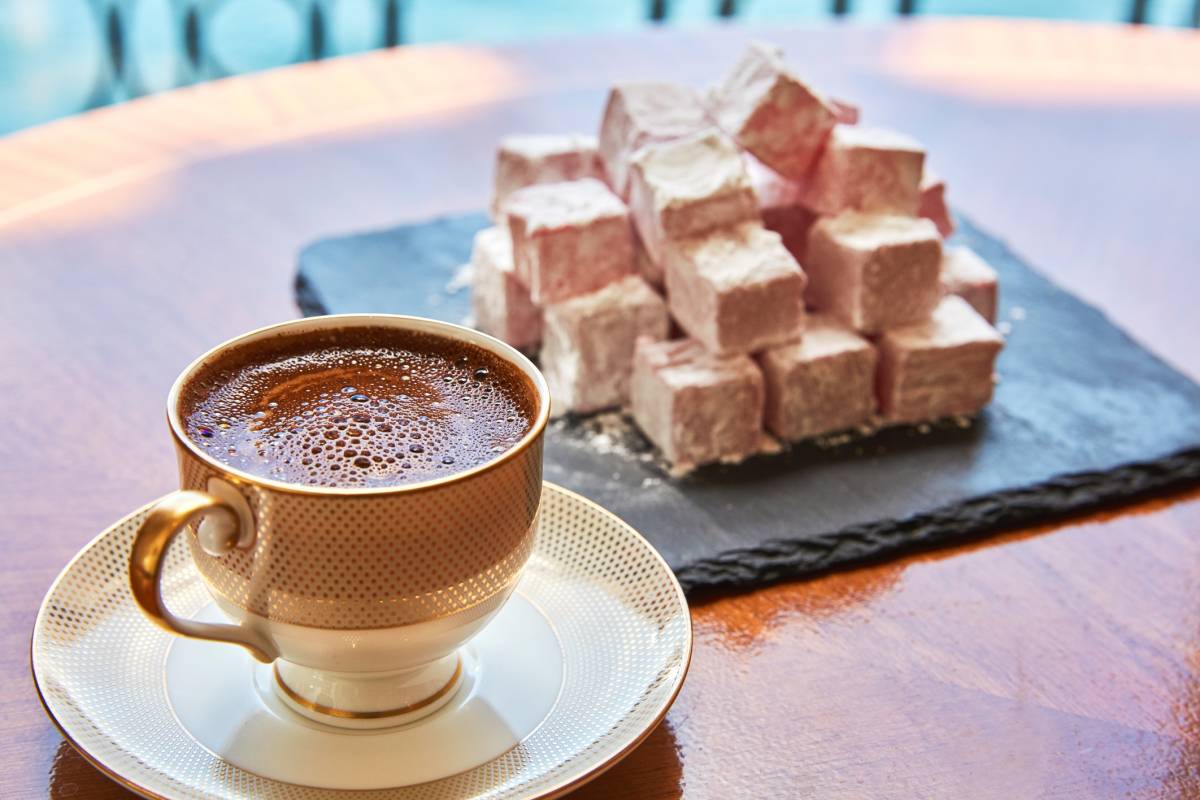World Turkish Coffee Day: A sip of culture, friendship, and timeless traditions
Discover regional varieties and their unique flavours

Turkish coffee is one of the most authentic tastes to experience in Türkiye, renowned for its unique flavour and traditional brewing process. However, it is far more than just a caffeinated beverage.
In Turkish culture, coffee is a symbol of hospitality and friendship, a cherished drink that brings people together and fosters deep conversations. As the saying goes, “A cup of coffee drunk together remains in the heart for forty years.” It is only fitting that UNESCO recognised Turkish coffee by adding it to its Intangible Cultural Heritage list in 2013. To commemorate this special tradition, December 5th is celebrated as World Turkish Coffee Day.
Let’s take a closer look at the history of this beloved drink.
Arrival in Turkish Lands
Coffee made its way to the Ottoman Empire through Yemen, reaching Sultan Suleiman’s palace in Istanbul. There, palace chefs developed the distinctive brewing method that defines Turkish coffee today. This brewing technique, now known as Turkish coffee, was introduced to public life in Istanbul during the 16th century when coffee houses became popular gathering places.
As Istanbul grew into a cosmopolitan hub for trade, coffee soon spread beyond Turkey’s borders, with merchants bringing coffee beans to distant lands and European diplomats introducing the culture to their own countries.

A Tradition Deeply Rooted in Turkish Culture
Turkish coffee has remained an essential part of Turkish culture for centuries. What sets it apart is the consistency of its brewing method, which has not changed over time. To prepare an authentic Turkish coffee, very finely ground coffee is combined with water in a pot called a cezve, which has a long handle and a pouring lip. The coffee can be made to varying levels of sweetness – plain, mildly sweet, or very sweet.
It is traditionally served in small cups alongside a glass of water and a piece of Turkish delight. The water helps cleanse the palate, allowing the full flavour of the coffee to be savoured. Turkish coffee is such an integral part of life that even the word “kahvaltı,” which refers to breakfast, translates to “the meal before coffee.”
Coffee accompanies nearly every meal as a digestive, and it plays an important role in conversations with friends or during home visits. An enjoyable tradition linked with Turkish coffee is fortune-telling, where the grounds left in the cup are interpreted for fun.
Coffee is also an essential part of special occasions, such as religious holidays and engagements.

Turkish Coffee Varieties
While the classic Turkish coffee is consumed daily throughout the country, numerous regional variations offer a diverse range of flavours. In the Aegean region, for example, Turkish coffee is prepared with mastic gum, a local resin. In Gaziantep, menengiç coffee, made from the fruit of the Pistacia terebinthus tree, offers a fruitier, caffeine-free alternative.
In southeastern cities like Mardin and Şanlıurfa, mırra coffee, one of the strongest coffees in the world, is served in small cups without handles. For those who prefer a lighter brew, stone-ground dibek coffee is a delightful option. Turkish coffee can also be cooked in different ways, such as overheated sand, coals, or even ashes, adding to its rich variety.
How to Make Foamy Turkish Coffee
You can join in the celebrations for World Turkish Coffee Day by brewing your own foamy Turkish coffee. To start, ensure your coffee beans are as fresh as possible. Grind the coffee more finely than you would for filter coffee. Combine the coffee with water in a cezve, add sugar to your taste, and gently simmer the mixture. Once it reaches a boil, a rich foam will form on top. Carefully pour the coffee to keep the foam intact. Enjoy your coffee with a glass of water, or consider planning a trip to Türkiye to experience the finest Turkish coffee in its homeland.